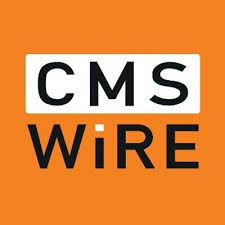HubSpot recently had a very successful IPO, but does it have what it takes to be successful long-term? Recently it seems we are living in an era where some big tech company seems to launch, get bought, or has an IPO every other week. The business models for some of them are something altogether untested […]
Monthly Archives: October 2014
Facebook Down on Slowed User Growth, Increased Costs
Ken Wisnefski talked to Fox Business reporter Katie Roof regarding the value of Facebook’s stock. “Facebook has become one of the absolute best stocks to purchase. It’s what Google was in its early days,” Ken Wisnefski, founder of Webimax.com,” said. Click Here to read the Full Article
Ken Wisnefski in CMS Wire on Facebook
“It really shows Facebook has become essentially the mobile platform and is the main place for marketers to look at for mobile ads,” he said. ” Facebook has really become an ad platform. It’s really being mentioned with Google in that way.” Click Here to Read the Full Article
Ken Wisnefski on Facebook’s Mobile Ad Prowess – Mobile Marketer
Ken Wisnefski talks to Mobile Marketer’s Michael Barris about Facebook’s mobile dominance and 3rd quarter earnings. “The major item to consider is that advertisers are moving a lot of budget towards Facebook,” said Ken Wisnefski, CEO, Webimax. “This budget is coming from places like Google spends which will hurt Google while fueling the growth of […]
Let Apple’s U2 stunt be a lesson to those that want to give away free music.
As part of the promotion for the latest iteration of the Iphone, Apple inadvertently ticked off a lot of customers -presuming that they’d like a copy of the new U2 album and thereby uploading it onto their devices. In doing so, Apple basically said, “whether you like U2 or not, you like U2.” This deal […]
Ken’s Interview in The Social Media Monthly Magazine on Snapchat
Ken lent his insights to Social Media Monthly Magazine on the ephemeral messaging app Snapchat’s efforts to monetize their platform with advertising. “Ask MySpace what ads will do to your platform,” said Wisnefski. “At the end of the day, trendy platforms like SnapChat start to lose their cool once more focused advertising begins to […]
Frequent-Flier Programs: Ready for Regulation?
Ken’s insights on frequent-flyer programs were shared in the Huffington Post. Click Here to See the Full Article
Ken talks to the Washington Post about frequent-flier programs favoring airlines over fliers
Ken Wisnefski spoke with the Washington Post’s Christopher Elliott on what’s behind customer loyalty programs. The DOT inspector general audit resonates with frequent fliers like Ken Wisnefski, the founder of a Web marketing firm in Camden, N.J. As a professional marketer, he’s seen any number of loyalty programs up close. But he says that nothing […]
Ken Wisnefski on CBS Sports Radio with Jody McDonald
In this clip, Ken Wisnefski discusses the importance of branding, the perils of social media and Derek Jeter’s latest media venture with CBS Radio host Jody McDonald.
Ken Wisnefski Talks Derek Jeter and Reputation Management for Athletes with Wisconsin radio host Jeff Falconio
Ken Wisnefski discusses reputation management for athletes and Derek Jeter’s media venture The Player’s Tribune with Wisonsin’s 620 WTMJ radio host Jeff Falconio.
The Great Ello Debate
In this clip from Alberta Lea radio in Minnesota, Ken Wisnefski discusses the new ad free social media network and its prospects at displacing already entrenched social media platforms.
Ken Wisnefski talks Derek Jeter with ESPN Radio
In this clip, Ken Wisnefski talks about Derek Jeter’s new media venture, The Players Tribune with ESPN Radio hosts Billy Elvis and Stiller.
Goodbye Ello Brick Road…
So you want to try Ello, the new indie ad-free social network that boasts it won’t buy or sell your information. First of all, good luck getting into the network, which is currently invitation only, and second, what about your friends and your friends’ friends? Where exactly is all the content you go to Facebook […]
Why People Won’t Leave Facebook and Go To Ello
In this article featured in The Social Media Daily Magazine, Ken Wisnefski lists some of the reasons why people will not leave Facebook to go to the ad free social network Ello. Click Here to Read the Full Article
3 Effective Ways to Use Snapchat for Your Business
“Snapchat can be an effective marketing tool for businesses targeting a younger clientele,” said Ken Wisnefski, founder and CEO of Internet marketing company WebiMax. Businesses can promote specific products, offer discounts and use the Snapchat Stories feature to entice younger audiences to engage in their brand, he added. Because of this, however, Snapchat isn’t worth your time […]
Netflix Original Series Ratings Are A Mystery As Adam Sandler Joins TV’s New Dark Ages
Ken Wisnefski was quoted in the International business times on why Netflix may not share their information on their ratings: Exactly how many of those subscribers watch, say, “House of Cards” is a matter of pure speculation, and analysts say that could be for one of two reasons: Either ratings for Netflix shows are terrible, […]












